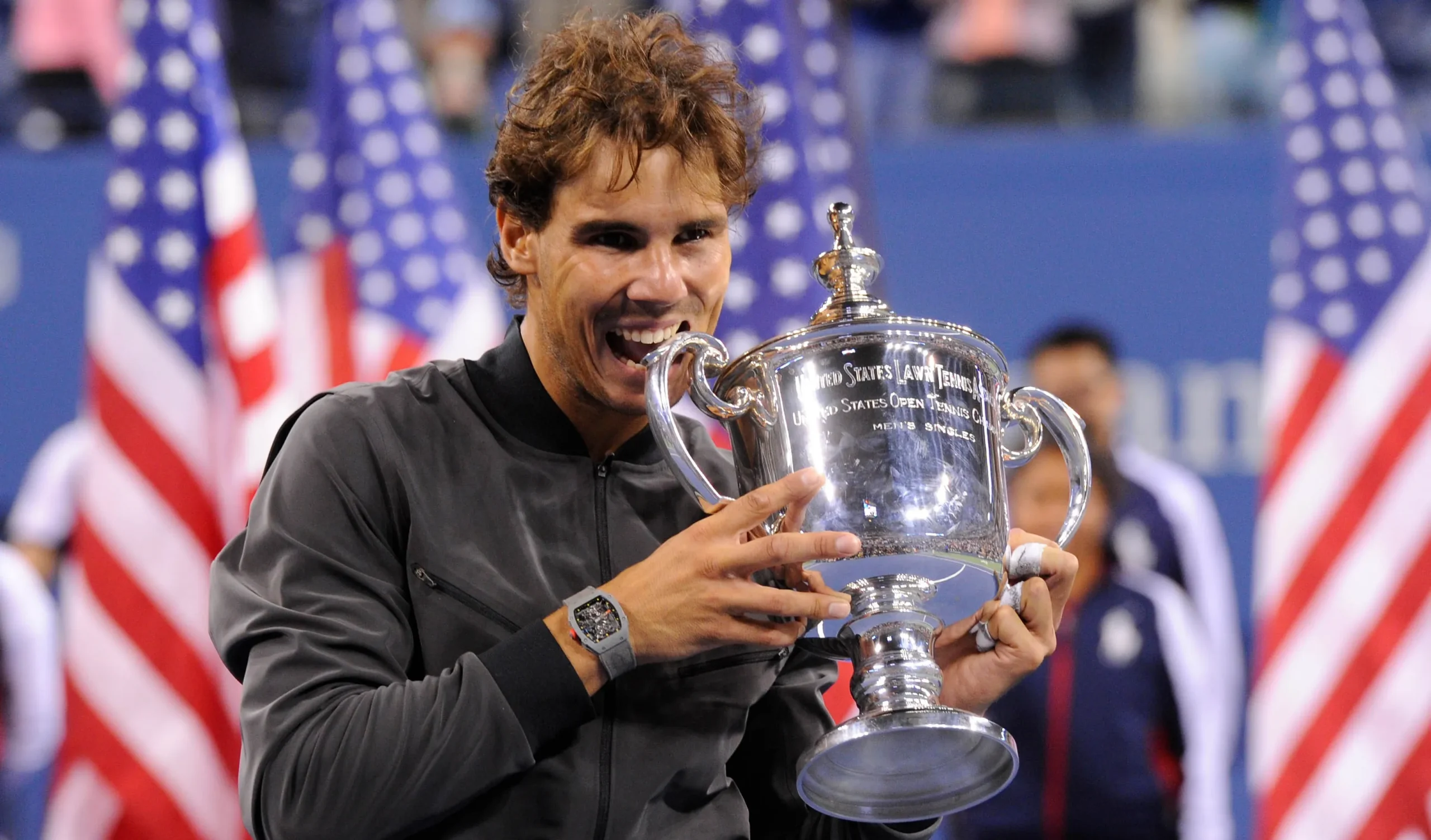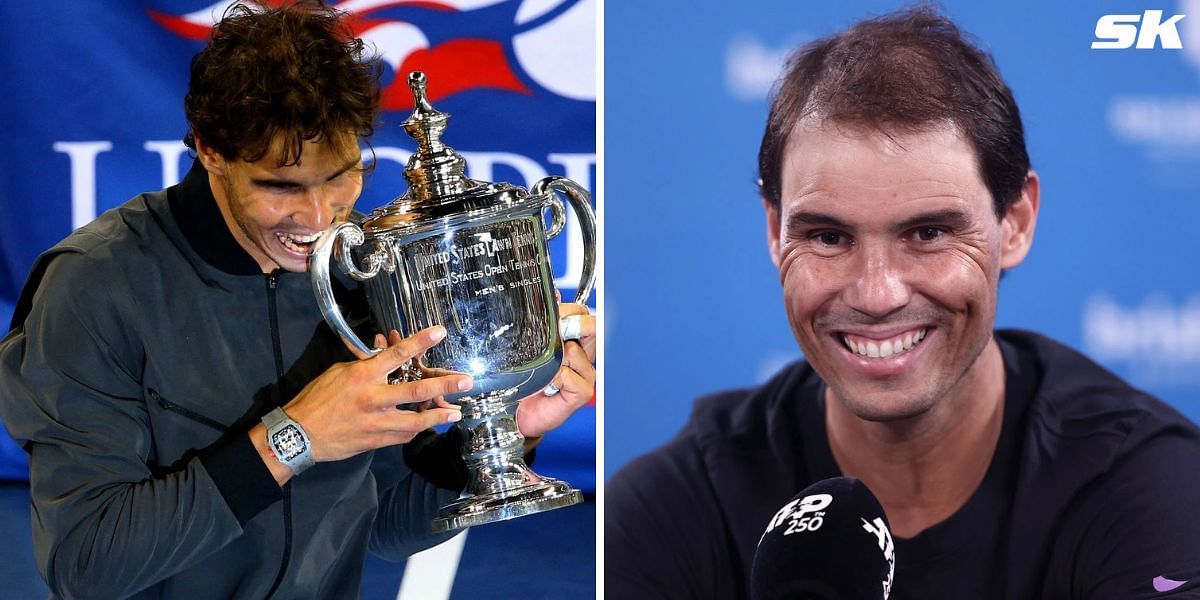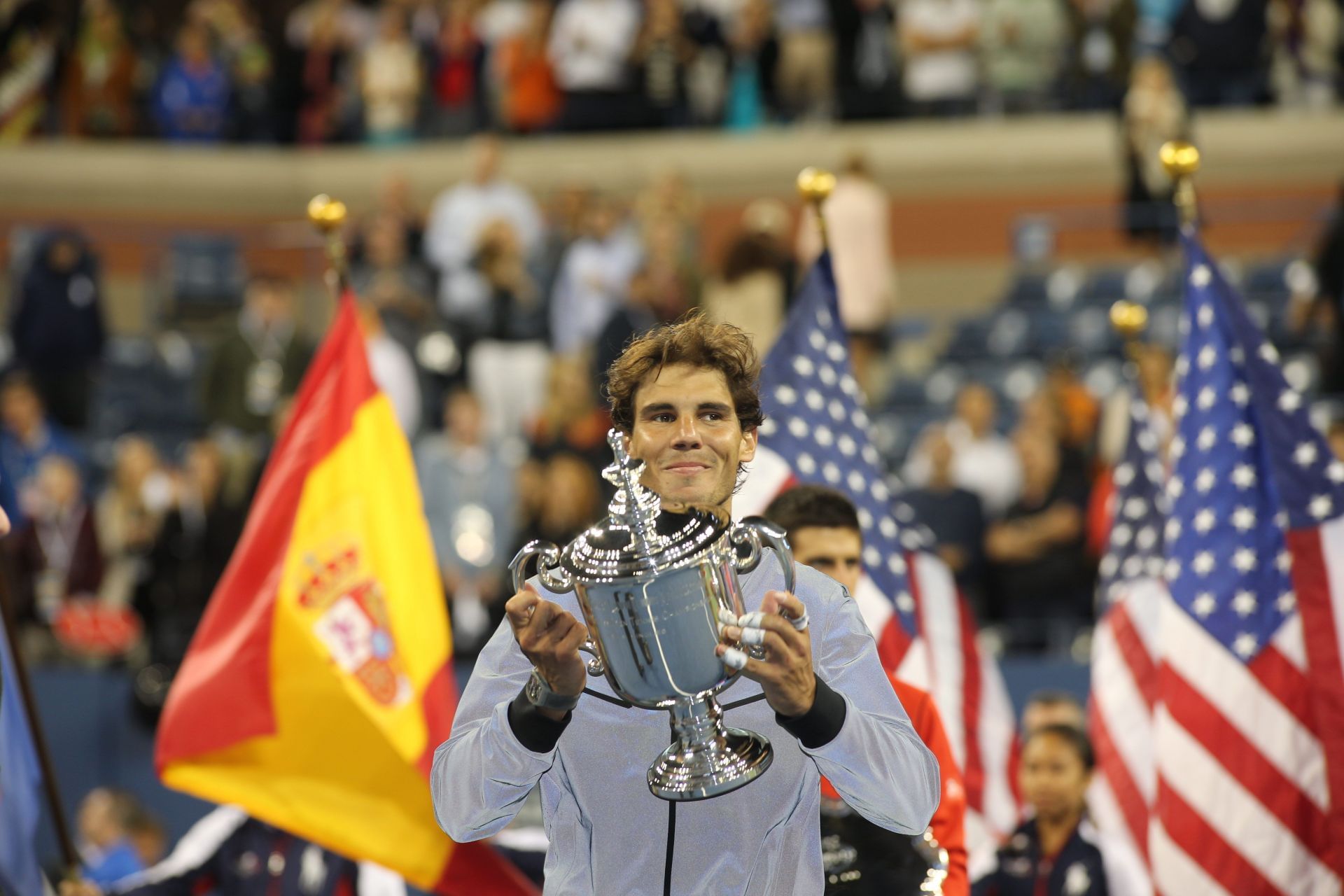
Rafael Nadal’s victory at the 2013 US Open was a landmark achievement in his illustrious career, marking his second triumph at the prestigious New York Major and bringing his total Grand Slam titles to 13.
In a year that saw him also claim titles at the Canadian Open and Cincinnati Open, Nadal’s performance during the summer of 2013 was nothing short of spectacular. However, it was not just the trophies and accolades that captured attention; Nadal also humorously addressed the substantial prize money he earned, making light of the tax implications.
Nadal’s 2013 Summer Slam: A Season to Remember
Nadal’s 2013 season was one for the history books. The Spanish maestro demonstrated remarkable skill and resilience, claiming three significant titles in quick succession. After winning the Canadian Open in Montreal, where he defeated the home favorite Milos Raonic in straight sets, Nadal continued his winning streak by clinching the Cincinnati Open. This set the stage for his triumph at the US Open, where he capped off an extraordinary summer.
The US Open final saw Nadal face off against his arch-rival Novak Djokovic in a thrilling match. Nadal emerged victorious with a scoreline of 6-2, 3-6, 6-4, 6-1, showcasing his exceptional talent and determination. This win not only added another Grand Slam title to his name but also cemented his place in the elite circle of players who have achieved the rare feat of winning the Canadian Open, Cincinnati Open, and US Open in the same year.
The Prize Money and the Tax Reality
While Nadal’s on-court achievements were the talk of the tennis world, he also brought attention to an often-overlooked aspect of professional sports: prize money and taxes. In a light-hearted press conference following his US Open victory, Nadal joked about the substantial $3.6 million prize money he had earned from his summer successes.
“The prize money is great for the sport,” Nadal remarked. “The sport is bigger and bigger. It’s a lot of money, it’s true. The only thing that we can say is thanks to the US Open, US Open Series, for that improvement on our sport.” Nadal acknowledged the significant financial boost provided by the tournaments, expressing gratitude for the increased prize money and the efforts made to enhance player earnings.

However, Nadal’s humor shone through as he addressed the reality of taxation. “They are making a big effort on increasing the prize money for the players. Just say thanks. At the end, it’s a lot of money anyway. But that’s not the real prize money. You have to pay the tax, and in Spain today it is 56, I think. Anyways, a lot of money, yeah. Is more than half. Is more than half less, and then is Euros (laughter),” he added.
Nadal’s joke about the tax deductions highlighted the disparity between the gross prize money and the net earnings after taxes. In Spain, where the tax rate for high earners can be as high as 56%, a significant portion of the prize money is deducted before it reaches the player’s hands. Nadal’s playful commentary on this issue resonated with fans and highlighted the often-overlooked financial aspects of a professional athlete’s career.
Nadal’s Reflections on the 2013 US Open Win
Reflecting on his 2013 US Open triumph, Nadal described the victory as one of the most meaningful of his career. In the press conference, he expressed how the win was particularly significant in what was likely his “most emotional” season.
“For a few things this season is probably the most emotional one in my career,” Nadal said. He had faced a challenging path to the final, defeating a series of formidable opponents including Ryan Harrison, Rogerio Dutra da Silva, Ivan Dodig, Philipp Kohlschreiber, Tommy Robredo, Richard Gasquet, and finally, Novak Djokovic. Nadal’s performance throughout the tournament was a testament to his skill, perseverance, and dedication.
“So, you know, you play one match against one of the best players in the history like this, Novak, No. 1 in the world, probably on probably his favorite surface,” Nadal continued. “I have to be almost perfect to win, I say the other day here. Means a lot for me to have this trophy with me today.”
Nadal’s comments underscored the significance of the victory, not just in terms of adding another Grand Slam title to his collection, but also in overcoming a fierce competitor like Djokovic. The emotional weight of the win was palpable, and Nadal’s gratitude was evident as he reflected on the support he received throughout the season.
“Very, very happy, and just thank you very much everybody who helped me to make that possible. It is a really special moment for me. Many thanks to everybody, all the fans and all the team and all the family,” Nadal concluded.
The Legacy of Nadal’s 2013 Victory
Nadal’s 2013 US Open win was more than just a single tournament victory; it was a testament to his enduring greatness and resilience. The season marked a return to dominance for Nadal after a challenging period, showcasing his ability to perform at the highest level across different surfaces. The victory added to his already impressive Grand Slam tally and further solidified his place among tennis’s elite.

The playful yet insightful comments about prize money and taxes offered a glimpse into the realities of a professional athlete’s financial landscape. Nadal’s humor and humility in addressing these aspects, coupled with his reflection on the emotional significance of his 2013 triumph, painted a comprehensive picture of the challenges and rewards of a career in professional sports.
As Nadal continues to compete and achieve in the world of tennis, the 2013 US Open will remain a highlight in his storied career, a symbol of his perseverance, and a reminder of the joy and complexity that comes with being a top athlete.
Leave a Reply